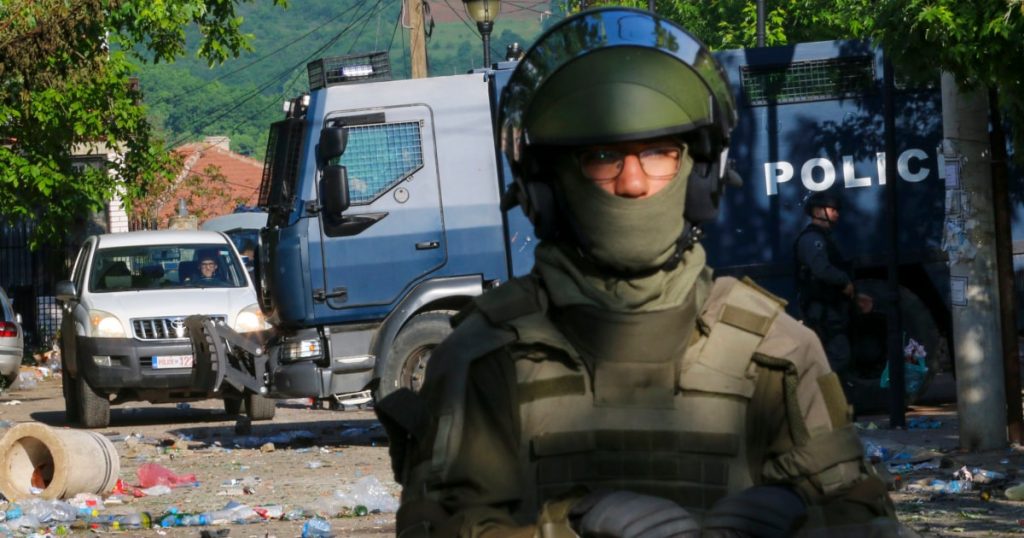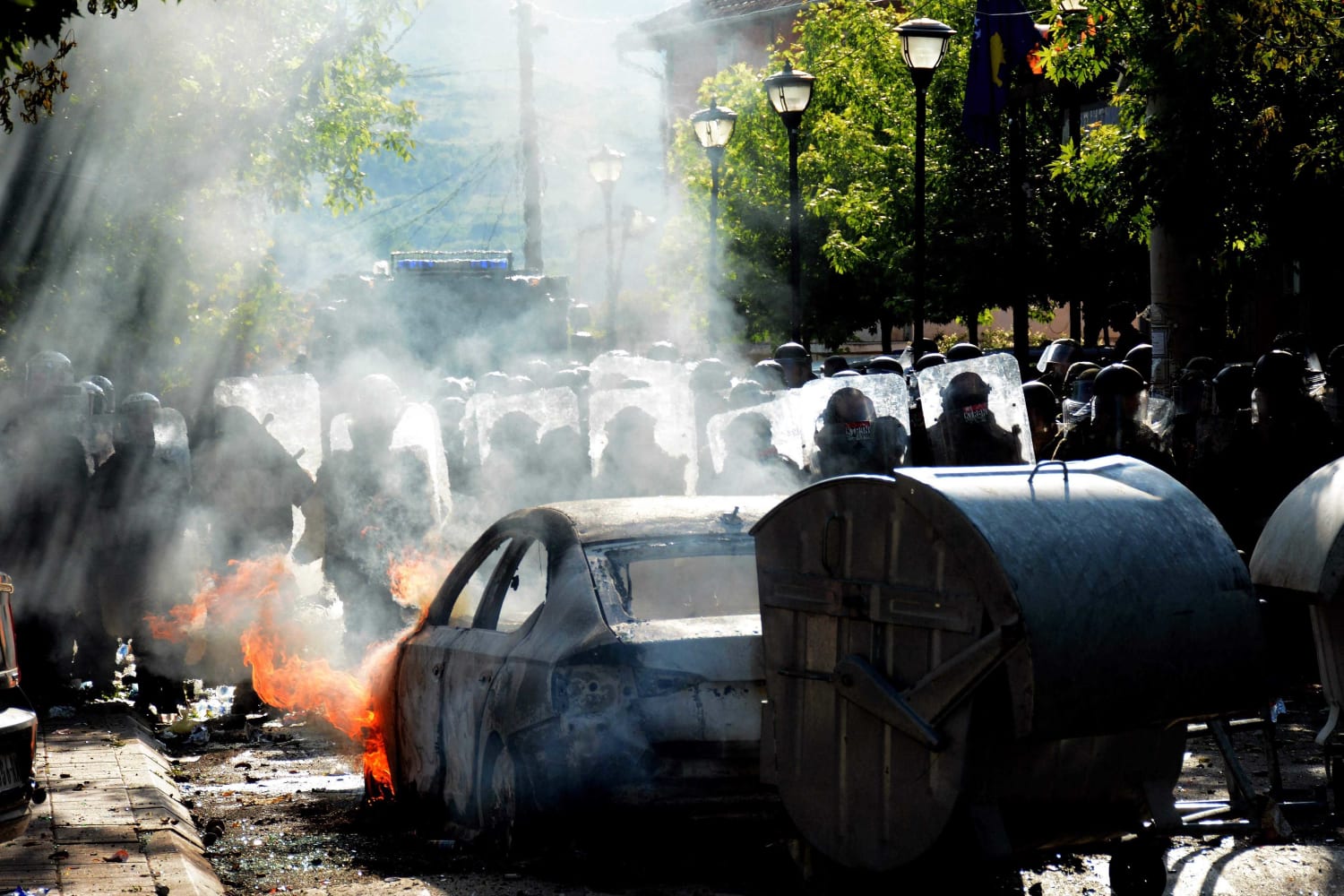

The violence was the latest incident as tensions soared over the past weekend when ethnic Serbs in northern Kosovo tried to block recently elected ethnic Albanian officials from entering municipal buildings. Kosovo police fired tear gas to disperse the crowd and let the new officials into the offices. Serbia put the country’s military on high alert and sent more troops to the border with Kosovo.
Kosovo and Serbia have been foes for decades, with Belgrade refusing to recognize Kosovo’s 2008 sovereignty.
The United States and the European Union have stepped up efforts to help solve the Kosovo-Serbia dispute, fearing further instability in Europe as Russia’s war rages in Ukraine. The EU has made it clear to both Serbia and Kosovo that they must normalize relations if they’re to make any progress toward joining the bloc.
Western ambassadors of the so-called Quint — France, Italy, Germany, the United Kingdom and United States — met in Pristina with Prime Minister Albin Kurti, asking him to take steps to de-escalate and lower tensions, while strongly denouncing the Serbs’ violence against KFOR troops and journalists.
“Ultra-nationalistic Serb graffiti on NATO vehicles is a dark reminder in Kosovo We stand for peace and security,” said Kurti after the meeting.
Quint ambassadors are to meet with Vucic, and he is also meeting with Russian and Chinese ambassadors to show he has support for his policies.
Ethnic Serbs in Zvecan, Leposavic, Zubin Potok and Mitrovica, four municipalities in the north, held elections last month that were largely boycotted by ethnic Serbs. Only ethnic Albanian or other smaller minority representatives were elected to the mayoral posts and assemblies.
The conflict in Kosovo erupted in 1998 when separatist ethnic Albanians rebelled against Serbia’s rule, and Serbia responded with a brutal crackdown. About 13,000 people, mostly ethnic Albanians, died. NATO’s military intervention in 1999 eventually forced Serbia to pull out of the territory. Washington and most EU countries have recognized Kosovo as an independent state, but Serbia, Russia and China haven’t.

 Latest Breaking News Online News Portal
Latest Breaking News Online News Portal




